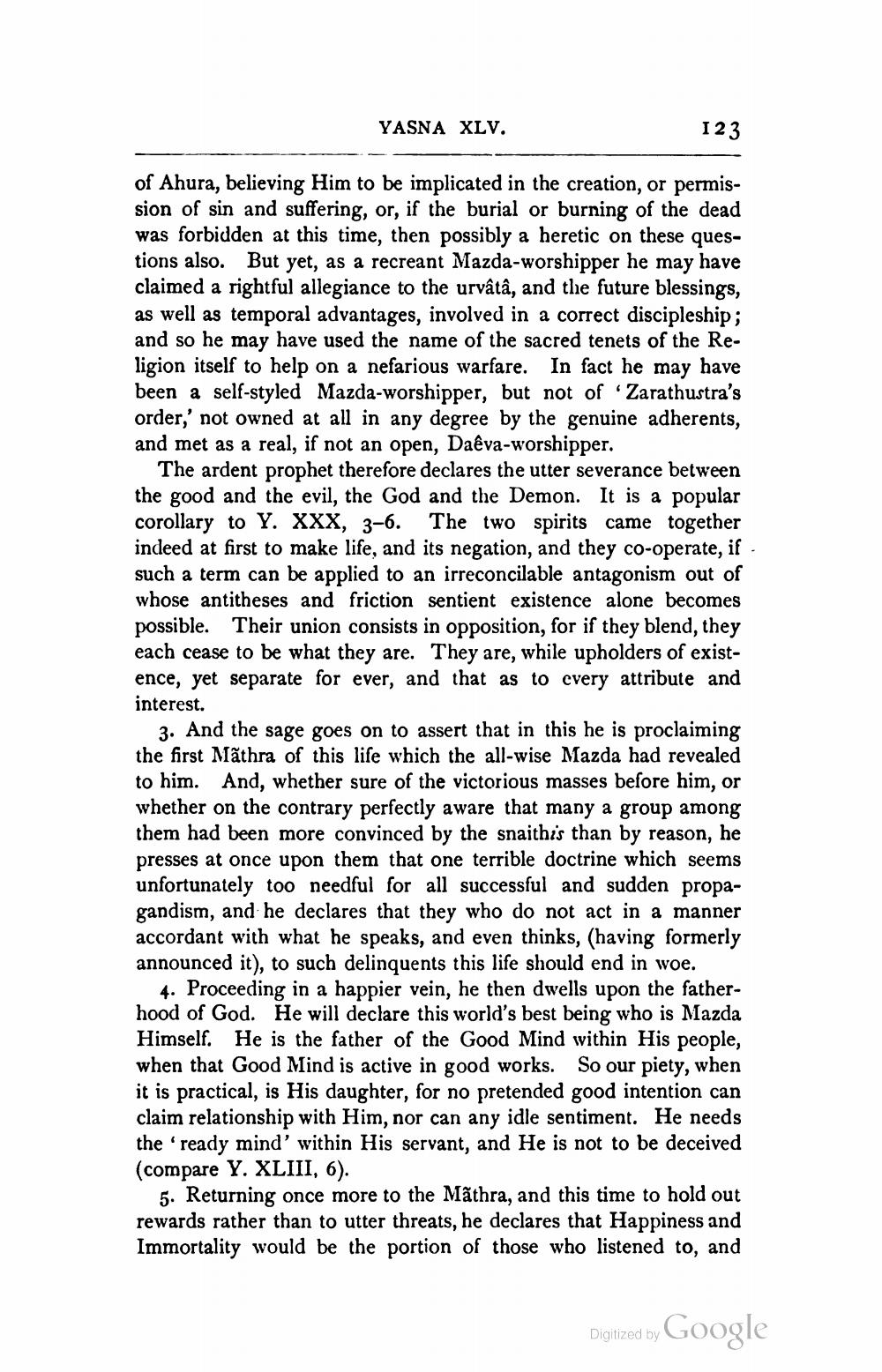________________
YASNA XLV.
123
of Ahura, believing Him to be implicated in the creation, or permission of sin and suffering, or, if the burial or burning of the dead was forbidden at this time, then possibly a heretic on these questions also. But yet, as a recreant Mazda-worshipper he may have claimed a rightful allegiance to the urvâtâ, and the future blessings, as well as temporal advantages, involved in a correct discipleship; and so he may have used the name of the sacred tenets of the Religion itself to help on a nefarious warfare. In fact he may have been a self-styled Mazda-worshipper, but not of 'Zarathustra's order,' not owned at all in any degree by the genuine adherents, and met as a real, if not an open, Daêva-worshipper.
The ardent prophet therefore declares the utter severance between the good and the evil, the God and the Demon. It is a popular corollary to Y. XXX, 3-6. The two spirits came together indeed at first to make life, and its negation, and they co-operate, if such a term can be applied to an irreconcilable antagonism out of whose antitheses and friction sentient existence alone becomes possible. Their union consists in opposition, for if they blend, they each cease to be what they are. They are, while upholders of existence, yet separate for ever, and that as to every attribute and interest.
3. And the sage goes on to assert that in this he is proclaiming the first Mathra of this life which the all-wise Mazda had revealed to him. And, whether sure of the victorious masses before him, or whether on the contrary perfectly aware that many a group among them had been more convinced by the snaithis than by reason, he presses at once upon them that one terrible doctrine which seems unfortunately too needful for all successful and sudden propagandism, and he declares that they who do not act in a manner accordant with what he speaks, and even thinks, (having formerly announced it), to such delinquents this life should end in woe.
4. Proceeding in a happier vein, he then dwells upon the fatherhood of God. He will declare this world's best being who is Mazda Himself. He is the father of the Good Mind within His people, when that Good Mind is active in good works. So our piety, when it is practical, is His daughter, for no pretended good intention can claim relationship with Him, nor can any idle sentiment. He needs the 'ready mind' within His servant, and He is not to be deceived (compare Y. XLIII, 6).
5. Returning once more to the Mãthra, and this time to hold out rewards rather than to utter threats, he declares that Happiness and Immortality would be the portion of those who listened to, and
Digitized by Google
Digitized by




